A recent Harvard report found that investing in early childhood education programs provides opportunities to children that lead to upward economic mobility later in life. Children who participate in quality early childhood experiences have many positive and lasting gains, including that they are less likely to be retained in a grade, more likely to graduate from high school and have more opportunity for economic advancement. Yet, one in three working families still struggles to find the early childhood care and education they need to give their children a strong start and set them up for success. Another recent report says the child care shortage costs Michigan’s economy $2.88 billion a year.
In 2016, more than 18,000 Detroit residents came together to address this challenge and develop a model to increase access to quality early childhood care and education for children from birth through age 8. They called their model Hope Starts Here, and they identified six imperatives to make Detroit a city that puts young children first by 2027.
Since then, the W.K. Kellogg and Kresge Foundations, alongside IFF, which facilitates the initiative, have convened a group of community-based leaders into an advisory committee that we co-chair. The actual work of creating a more equitable early childhood system is done by nonprofit and community-based partners operating in the six imperative areas identified by the community.
The six imperatives and nonprofit leaders are:
• Henry Ford Health and the Detroit Health Department focus on strengthening a coordinated system of care and resource navigation for pregnant mothers to provide wraparound support and care from pregnancy through the child’s early years.
• Detroit Champions for Hope will continue to leverage its multitude of partners working
together to support both families and caregivers to learn about early childhood development practices and to access basic needs, public benefits, and federal and state resources such as the childcare subsidy and more that ensure their children have what they need to grow up healthy. Detroit Champions for Hope will also continue to uplift families and caregivers as advocates to drive long-term policy change.
• Black Family Development and Early Childhood Investment Corporation connect early childhood providers to technical assistance to improve program quality, campaign for equitable compensation for early childhood educators, facilitate partnerships to expand the early childhood workforce and work to streamline kindergarten transitions.
• IFF focuses on improving the quality of Detroit’s early childhood facilities; IFF supports providers to expand and enhance healthy, bright, active early childhood learning spaces through technical assistance, funding, targeted support and new construction.
• United Way for Southeastern Michigan will continue to strengthen and improve data systems
coordination, including the expansion of a Community Information Exchange that will provide one-stop access to families for early childhood eligibility and enrollment supports, as well as access to pre-natal care, and emergency food and housing services.
• Southeast Michigan Early Childhood Funders Collaborative (supported by the Council of Michigan Foundations) focuses on bringing together philanthropy, corporations and state and local government to resource the priorities within the Hope Starts Here framework.
Since the launch of Hope Starts Here in 2017, and despite the COVID-19 pandemic, these partners have already accomplished a lot through the advocacy and outreach:
• Secured a state commitment to universal lead testing for all young children, addressing longstanding racial and socioeconomic disparities in elevated lead levels among Detroit’s children.
• Helped bring an additional $23 million in childhood stabilization grant funding to keep childcare providers in business during the pandemic. Detroit Champions for Hope and partners supported 186 Detroit providers to access federal relief funds to help them keep their lights on, pay their staff and serve their families during the pandemic.
• Expanded access to quality childcare for Detroit families to access quality childcare by raising the income threshold for state-subsidized early childhood programs, helping middle class families gain additional support. Hope Starts Here partners also helped over 3,500 families to receive the child care subsidy to access quality, affordable child care.
• Assisted, together with partners, over 1,000 Detroit families in accessing the Child Tax Credit, which provided an additional $6.5 million to low- and moderate-income families.
• Brought in over $5 million in public and private dollars, including $2.9 million from the State of Michigan Caring for MI Future program, to help open, improve or expand over 120 classrooms and learning spaces in Detroit, ensuring more young children have access to safe and inspiring learning environments.
We are proud of those accomplishments, and yet we acknowledge that a lot more needs to be done to properly support the children of Detroit. At last count, 23,000 children in Detroit still lack access to quality early learning programs. All of Hope Starts Here’s imperative partners must continue to work together to serve Detroit’s children and families, coordinate systems and create more equitable access to quality early learning opportunities. The W.K. Kellogg and Kresge Foundations remain committed to Hope Starts Here, continuing to invest $5 million over the next two years. And our partners throughout the city are committed to moving their efforts forward in collaboration.
As we move forward, we are excited for ongoing opportunities to partner with providers, families and community leaders in Detroit to build a stronger, more cohesive, and more sustainable ecosystem. There are many opportunities that lie ahead in Detroit: from the efforts by Hope Starts Here partners to streamline the experiences of families and providers to increased public funding for early childhood programs. And we know there are many more opportunities resulting from our state leaders in Lansing: from expanding Pre-K to all four-year-olds in Michigan, to unprecedented state investments in early educators, to ensuring that all eligible Detroit families are able to access the child care subsidy.
Hope Starts Here is ready to meet this moment – to bring partners together to envision Detroit as a city that puts its children first. We invite you to join us by connecting with one of our partners to learn how your voice can help shape this effort.


This article was co-written by Wendy Lewis Jackson (left), managing director of the Detroit Program for the Kresge Foundation, and Faye Alexander Nelson (right), director for Michigan at the W.K. Kellogg Foundation.

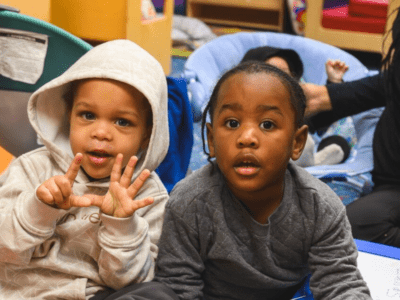

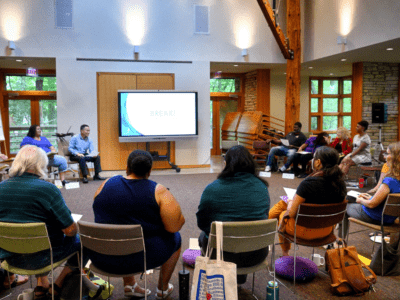
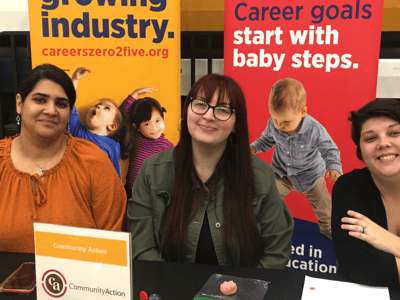
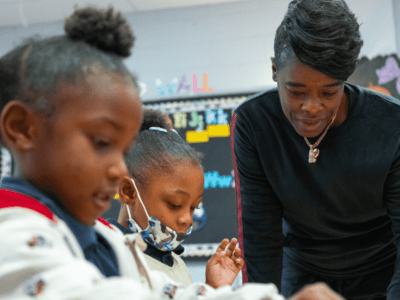
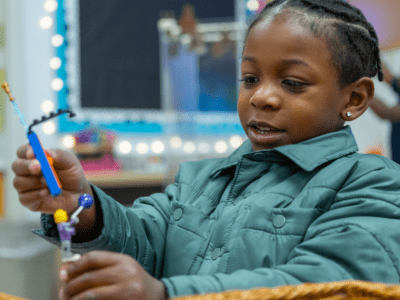

Comments